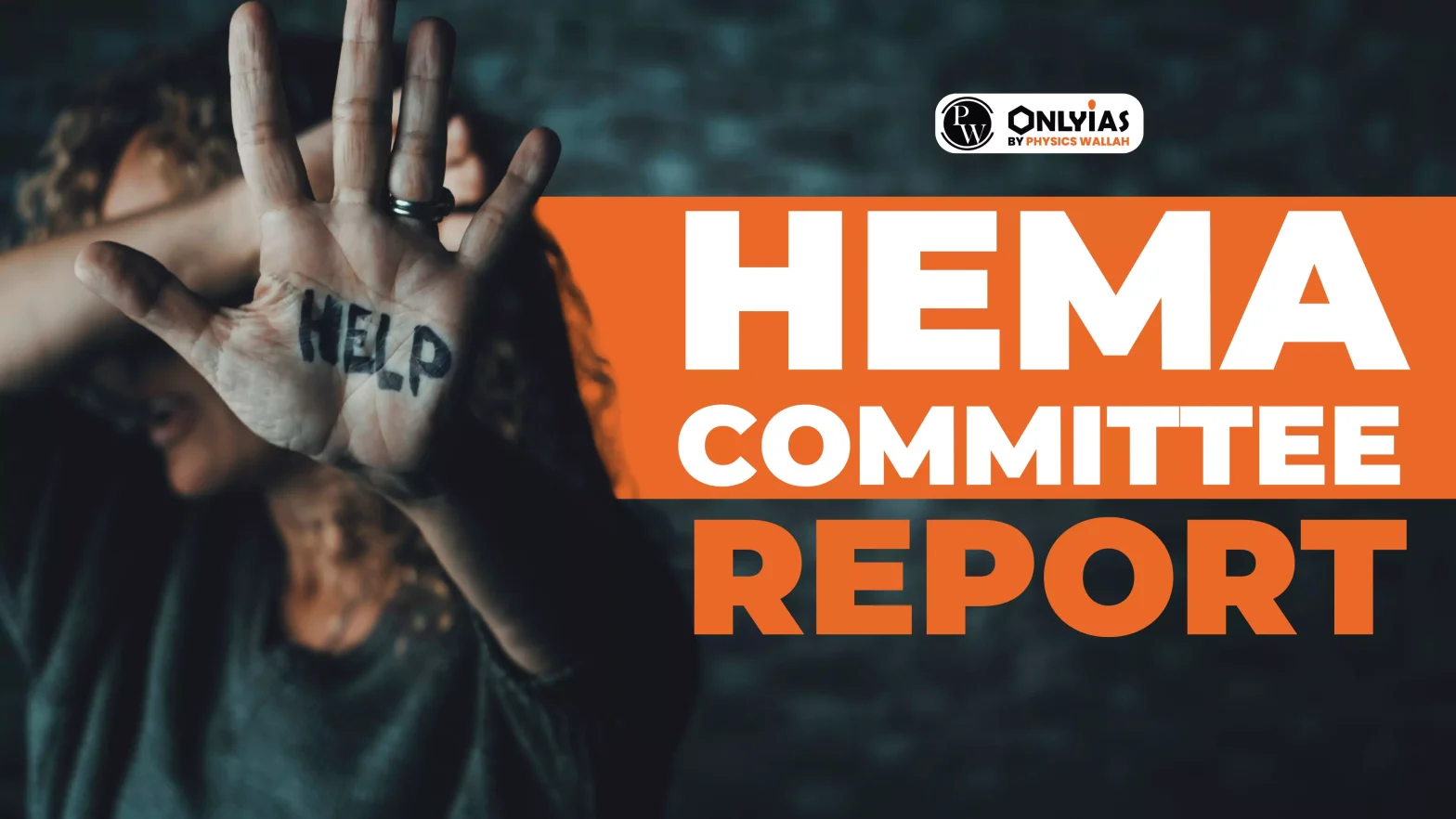Recent Case Study
- Gwalior Incident (January 2024): In January 2024, a case in Gwalior highlighted disturbing practices at a Seed Development Corporation job interview.
- For securing jobs, some candidates were subjected to inappropriate demands for sexual favours from the interviewer.
- A police complaint was filed, and action was taken, but this incident is just one example.
- The extent of such exploitation in our country remains largely unknown, as many cases go unreported due to the stigma and fear of reputational damage.
- Women are often coerced into silence, facing exploitation due to their economic necessity.
- Hema Committee Report :The recent public release of the Hema Committee report and the subsequent revelations in the Malayalam film industry have brought similar issues to light.
- The report, alongside revelations of multiple extortion cases, underscores the severe exploitation faced by women in the Malayalam film industry.
- This exposes a troubling pattern of abuse and highlights the need for greater accountability and support systems to protect women from such egregious exploitation.
Enroll now for UPSC Online Course
Background
- The Kerala government established the Justice Hema Committee in February 2017 following the sexual assault of a prominent Malayalam actress.
- The committee, led by retired Justice K. Hema, was formed to investigate issues in the film industry. It submitted its report on December 31, 2019, but the findings were made public only on August 19, 2024, five years later.
Key Findings from the Hema Committee Report
- Widespread Issues in the Malayalam Film Industry
- Lack of Basic Facilities: The report highlighted the absence of basic amenities, such as separate changing rooms for men and women. Women were forced to change in the men’s changing room.
- Harassment and Unsafe Working Conditions: The report revealed pervasive harassment and unsafe conditions on film sets, including incidents of rooms being accessed and knocked late at night by actors or attendants and various other forms of daily harassment.
- Issues in Other Sectors
- Healthcare:
- Inadequate Facilities: There is a lack of separate facilities for female doctors.
- Unsafe Working Conditions: A recent case at R.G. KAR Hospital exemplifies this issue where a female resident doctor, after working a 36-hour shift, went to a seminar hall for rest and was brutally raped and murdered.
- Harassment of Healthcare Workers: Nurses and ASHA workers face harassment from medical staff and patients.
- Education:
- Exploitation by Authority Figures: Cases of exploitation by figures of authority, such as principals, have been reported.
- Recent Incident in Nagpur (2024): A teacher was coerced into providing sexual favours in exchange for a permanent job position.
- Corporate and Political Sectors:
- Persistent Issues: Sexual harassment remains a significant problem across organized sectors, including corporate and political environments.
- Unorganized Sector and Laborers:
- Construction Sites and Domestic Workers: Workers in these sectors face heightened vulnerability, with very few cases reported due to fear and lack of support.
- Legal Framework
- Existing Laws:
- Sexual Harassment of Women at Workplace Act, 2013
- Protection of Women from Domestic Violence Act, 2005
- Indecent Representation of Women (Prohibition) Act, 1986
- Dowry Prohibition Act, 1961
- POCSO Act, 2012
- Challenges in Implementation: Despite these laws, the prevalence of sexual harassment suggests either shortcomings in the legal framework or inadequate enforcement. The lack of effective deterrence is also a significant issue.
Check Out UPSC Modules From PW Store
Conclusion
Effective implementation and the incorporation of values from an early age are crucial. Merely enacting stringent laws is insufficient; their proper implementation is crucial. Alongside enforcement, it is essential to foster a culture of respect from an early age. Simply legislating is not enough; ingraining values of respect for women is vital. In this Gen Z era, teaching these values to children is imperative to building a society that genuinely upholds gender equality.
![]() 7 Sep 2024
7 Sep 2024
